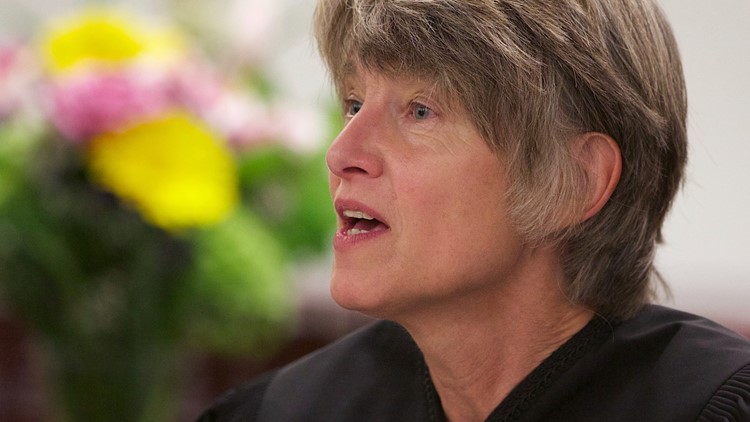PORTLAND, Ore. — Oregon Supreme Court Chief Justice Martha Walters said Tuesday that she’ll retire at the end of the year.
Walters, who became the first woman to serve as chief justice of the Supreme Court in 2018, is the second justice this month to announce a retirement, giving Democrat Gov. Kate Brown two appointments to the state’s high court before she leaves office, Oregon Public Broadcasting reported.
“I have loved the job of advocating for our courts and the critical need for access to the services we provide,” Walters said during remarks at a judicial conference where she made the announcement.
Walters’ plan to retire comes amid an uncertain political future for the state because of the November gubernatorial election. With unaffiliated candidate Betsy Johnson likely to draw votes, polls have indicated that Republican candidate Christine Drazan and Democratic Tina Kotek are locked in a tight race.
By retiring, Walters has ensured Brown will name a replacement who is likely to be aligned with Walters’ jurisprudence.
“Chief Justice Martha Walters has been an incredible advocate for Oregonians seeking access to justice, showing steadfast leadership as the first woman to serve as chief justice of the Supreme Court,” Brown said in statement.
Judges in Oregon must retire by the end of the year after they turn 75. Walters turns 72 next week, so if she stayed, that would give Oregon’s next governor the ability to appoint Walters’ replacement.
Earlier this month, Oregon Supreme Court Justice Thomas Balmer, 70, announced his retirement. In July, Justice Adrienne Nelson was nominated by President Joe Biden to the federal bench. If the U.S. Senate votes to confirm her before the end of year, Brown could name her replacement.
Justice Meagan Flynn, 55, will become the next chief justice, whose tasks include overseeing the Oregon Judicial Department. In the state’s public defense system, she will appoint commissioners who oversee the state Office of Public Defense Services, an agency that has reached a breaking point.
Oregon’s public defender system is the only one in the county that relies entirely on contractors. An ongoing public defender shortage due to workload, poor pay and late payments prompted criminal defendants to sue the state earlier this year, saying it is violating their constitutional right to legal counsel and a speedy trial.
Walters has said “systemic change” is needed and that the commission must collaborate with Oregon’s executive and legislative branches and the public defense community “to create a better system for public defense providers.”
In August, Walters called on the commission to fire former executive director Stephen Singer, who ran the agency for eight months. When they didn’t, she dismissed the commission and reappointed mostly members who had voted to fire Singer. The new commission then fired Singer.
Last week, Singer filed a lawsuit arguing his dismissal violated state law.



